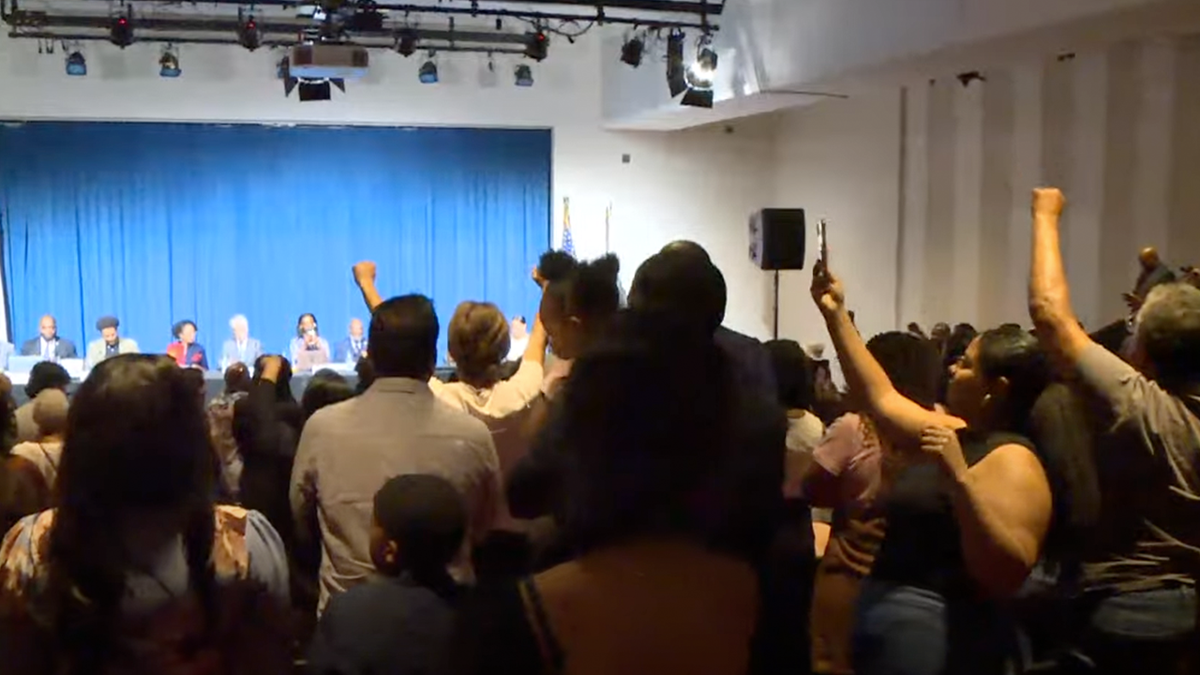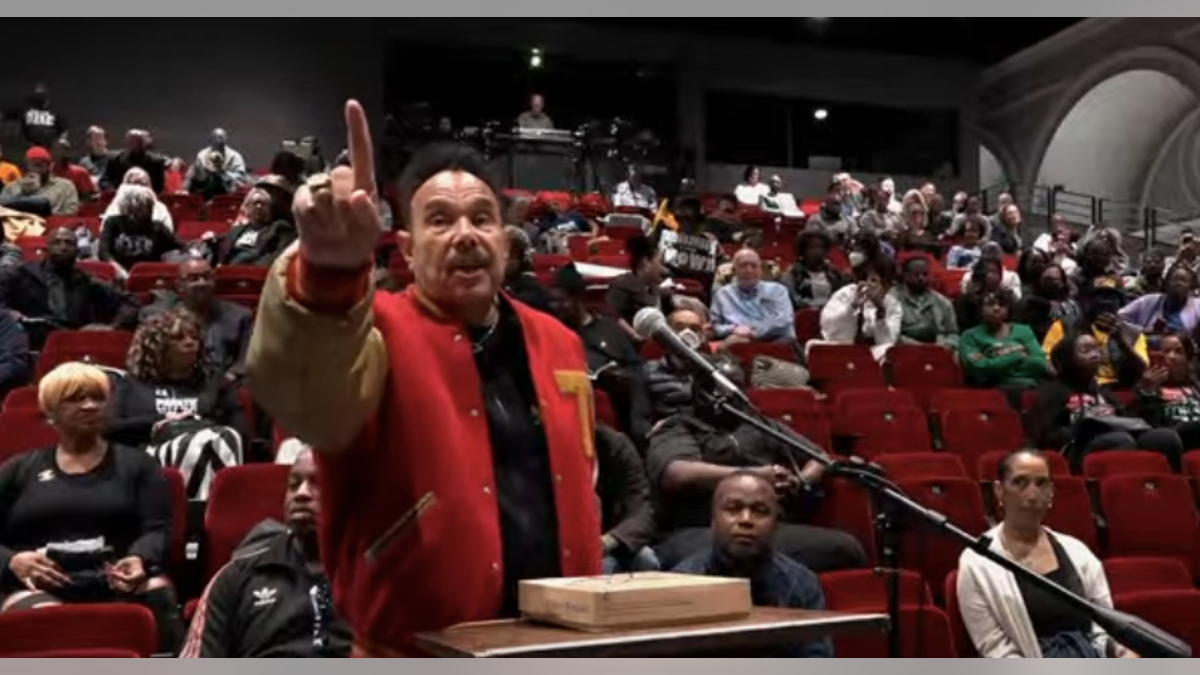Final reparations task force meeting in California gets heated: 'Time for a divorce!'
Several of the attendees at the California Department of Justice’s final Reparations Task Force meeting created a scene during the public comment section of the event Thursday, demanding reparations from the board.
Following its final meeting, Thursday, California’s Reparations Task Force put out a nearly 1,100 page-long report declaring the monetary compensation that African American state residents may be eligible to receive from the government for historical discrimination.
It estimated that Black Californians could receive $1 million in payment for the state’s treatment of their ancestors, treatment which has lingering effects on them today.
With the final meeting and this last report, the Task Force now leaves the provision of payment or other forms of restitution to the state legislature, which will decide the amount of money given, if any, and who is eligible to receive it.
CALIFORNIA REPARATIONS COMMITTEE CALLS FOR MANDATORY 'ANTI-BIAS' TRAINING TO GRADUATE MEDICAL SCHOOL

The crowd at the final California Reparations Task Force meeting on Thursday. (Screenshot/California Department of Justice YouTube account)
The report is a culmination of two years of research done by the task force into the historical discrimination faced by African Americans and their ancestors in the state. It offers a broad account of the ways that the state has wronged descendants of Black slaves whether that be through racial terror, political disenfranchisement, unequal housing, and other means.
The document also offers the state suggestions for how to issue a formal apology for the state’s history of discrimination, as well makes recommendations for how to create educational curriculums based on its findings.
To come up with the $1 million payment proposal, the Reparations Task Force worked with economists and policy experts to estimate minimum dollar amounts owed for discrimination on various fronts.
These include restitution for mass incarceration, race-based health disparities, housing discrimination and land seizures.
The report went through each of these categories, noting why payment is owed to certain Black state residents for each. According to the findings, there has been unequal treatment between Black Americans and White Americans in the healthcare system resulting in a loss of value of $967,000 over the lifetime of an average Black state resident.
CALIFORNIA REPARATIONS COMMITTEE CALLS FOR STATEWIDE K-12 CURRICULUM THAT TEACHES 'SYSTEMIC RACISM'

Reverend Tony Pierce calls for millions of dollars in reparations for each Black Californian at a meeting of the California Reparations Task Force on May 6, 2023. (YouTube screenshot from California Department of Justice channel)
Compensation for mass incarceration, over-policing, and the war on drugs’ treatment of Black Americans from the late 20th century to today was estimated to be $115,000 for those who lived during that time.
In terms of housing discrimination, the report noted that since 1850, Black homeownership in California has been disproportionately lower than White homeownership. Factors contributing to this over time include redlining and zoning rules that promoted segregation.
The task force calculated multiple way these disparities could be addressed, both of which resulted in potential payments to eligible Black Californians of more than $100,000.
For land seizure, the task force suggested that the legislature calculate loss in property per Black Californian that may have been taken from them or their ancestors by the state authorizing eminent domain.
The next step for this work in California’s efforts to redress historical discrimination of Black residents is on the state legislature, which was given over 115 recommendations by the task force for "critically need law and policy reforms" to correct the state’s relationship to the Black community.
CLICK HERE TO GET THE FOX NEWS APP
The task force has no power to enforce payments, or any other of these policy recommendations. Only state lawmakers can decide to employ or abandon them.
Fox News Digital reached out to the Reparations Task Force for comment on the meeting’s final recommendations and is awaiting a response.











































